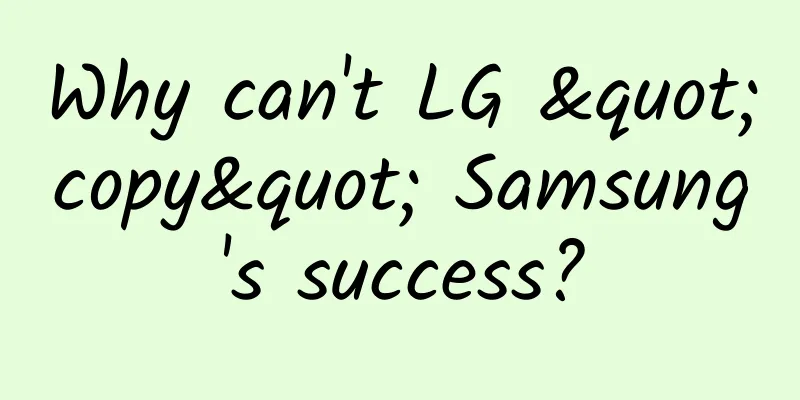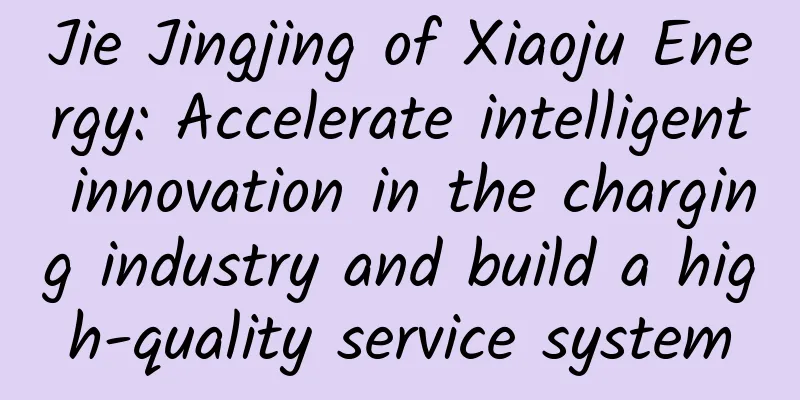Why can't LG "copy" Samsung's success?

|
For Chinese consumers, LG is another Korean technology brand that we are familiar with besides Samsung. Once upon a time, the slogan "I Chocolate U" was popular in China with the LG chocolate series of mobile phones. In comparison, "Let's Shine" was a little dim, and "Lollipop" was more like a not-so-successful sketch. Until the advent of the smartphone era, when Samsung became the sales leader in the mobile phone market, LG gradually faded out of the sight of domestic consumers. With last year's LG flagship G2 and this year's flagship G3, the heavy products launched in the Chinese market in the past two years have made LG rebound again. However, even if the products are excellent enough, LG has fallen far behind in the competition with Samsung, which is also a Korean manufacturer. There is a huge gap in the performance of the two leading Korean brands in the Chinese market LG and Samsung are not only from South Korea, but are also cutting-edge leaders in display technology in the modern technology industry. They also have similar ideas on the development of smartphone products. The "big plastic" that Samsung smartphones are often ridiculed by users is also the material that LG commonly uses in its mobile phone products. Whether it is the appearance style or the system interface design, users who are familiar with Samsung mobile phones will also be familiar with LG. Even though LG brought its then-competitive flagship product G2 to the domestic market in the second half of 2013, LG's performance in the Chinese smartphone market was still unsatisfactory. According to the latest data released by Analysys International, the top ten Chinese mobile phone manufacturers in terms of market share in the second quarter of this year are Samsung, Xiaomi, Lenovo, Coolpad, Huawei, Apple, OPPO, Gionee, ZTE, and Tianyu. While Samsung continues to take the lead, LG, which once had a place in the Chinese market, has not yet entered the top ten in terms of market share after returning to the Chinese market for nearly a year. LG Electronics President Shin Moon-beom recently revealed that the initial sales of LG's flagship smartphone G2 in the Chinese market last year were only 60,000 units. Although most electronics enthusiasts clearly believe that the LG G2 is an excellent product that is seriously underestimated by the market, the sales volume of 60,000 units is not even as good as some domestic brands' "limited-time sales" on online platforms, not to mention comparable to Samsung, whose Galaxy devices can be found everywhere. Affordable high-end products are not the only winning chip In the smartphone market, Samsung is a maniac in the use of the "sea of machines" strategy. From "mini" to "Mega", Samsung can be found in smartphones of all prices and sizes. Even HTC, which is not doing well, has products of different grades in the market to support the brand. On the other hand, the situation of LG is very interesting. After the launch of its annual flagship G3 this year, there are only four products on sale in domestic regular channels. If we remove the concept-selling G Flex and the "new wine in old bottles" Optimus G Pro that uses 4G network functions, there are only two flagship products in the true sense, the G2 and G3. It is simply a replica of the Apple model, which is based on the fact that the products use the Android system, which does not have the advantage of an exclusive closed ecosystem. Of course, overall, even though Samsung has a wide range of models, people are most concerned about its dual flagship series, the Galaxy S and Note. For LG, from G2 to G3, the absolutely top-level configuration plus the positioning of less than 4,000 yuan when it was launched on the market made it the king of cost-effectiveness among flagship smartphones. However, for a brand that has missed the golden age of smartphone development, if the only choice for consumers is high-end products above 3,000 yuan, it obviously does not meet the market demand, especially the user demand in the Chinese market. On the other hand, the gradual popularization of 4G networks in China has also made LG see a new trend in smartphones. However, as can be seen from "Yu Chengdong's call to Lei Jun", domestic mobile phone manufacturers are already able to make 4G terminal devices priced at 599 yuan or even lower. Combined with the fact that the 4G version of Optimus G Pro launched by LG some time ago did not perform well in the market, even if the price of high-end products is not unacceptable, it is difficult for them to become the "kingly way" to occupy the market, whether in the 3G era or the 4G era. LG still has a chance, but Samsung's success can no longer be replicated Unlike the domestic market, LG's performance in the international market is still quite impressive. With the accumulated brand influence and reputation of two generations of Nexus products, LG has entered the ranks of the top five smartphone manufacturers in the world. When LG's previous flagship G2 was first launched in the US market, it even outperformed strong competitors such as Samsung Galaxy Note 3. The poor performance of industry leader Samsung this year has also given other manufacturers the opportunity to expand their market. Compared with Samsung's unchanging and even slightly regressive product thinking in the eyes of some people, LG is better at making eye-catching products even if they are all made of plastic. These have contributed to LG's upward trend in the smartphone industry. However, the current situation of smartphones has changed dramatically since their development and maturity. LG has always regarded Samsung as its "imaginary enemy", but in the early days of Samsung's glory, there were not as many domestic mobile phone manufacturers as now, which Samsung Vice President Lee Jae-yong had to travel to Beijing to discuss countermeasures. LG's hard work for two generations of Google Nexus products was obviously not as effective as the "war of words" between Samsung and Apple. This year, Samsung and LG both invited popular Korean movie stars to endorse their products, once again demonstrating the two companies' competitive strategies. LG certainly has excellent products, and people also feel that "even Professor Do can't save Samsung phones", but changes in the market situation have made Samsung's success difficult to replicate, and LG does not yet have such strength. As a winner of Toutiao's Qingyun Plan and Baijiahao's Bai+ Plan, the 2019 Baidu Digital Author of the Year, the Baijiahao's Most Popular Author in the Technology Field, the 2019 Sogou Technology and Culture Author, and the 2021 Baijiahao Quarterly Influential Creator, he has won many awards, including the 2013 Sohu Best Industry Media Person, the 2015 China New Media Entrepreneurship Competition Beijing Third Place, the 2015 Guangmang Experience Award, the 2015 China New Media Entrepreneurship Competition Finals Third Place, and the 2018 Baidu Dynamic Annual Powerful Celebrity. |
<<: U-Pop TV e-commerce seeks new model for Internet TV
>>: Inventory of useless features of smart TVs
Recommend
Is it worth investing in WeChat Moments advertising? HOW DOES IT PERFORM?
Why use WeChat advertising ? Traditional advertis...
Marketing promotion: What else did Luckin Coffee do besides spending money to acquire users?
Today is the day when Luckin Coffee’s first 28% o...
The battle for smart home is on the rise again. Can Apple win with HomeKit?
According to foreign media reports on June 5, sin...
Product operation and promotion: How to compete for traffic?
Recently, more and more people around me are talk...
A star is burning! How cosmic winds are key to galaxy patterns
Illustration of an acceleration disk around a you...
User operation: How to do user segmentation?
We have said that user stratification is a specia...
Practical explanation of online promotion
Since coming into contact with the Internet, many...
Avita 12 first tested the country's first 5G-A smart parking lot
With the continuous evolution of 5G technology, C...
How much does a POS machine cost? (How to apply for a POS machine? Is there any fee?)
What should you do when you urgently need to appl...
Technical tips! "Ya Ya", "Meng Lan", "Hua Hua"... How to distinguish who is who among so many pandas?
After about 16 hours of flight, the cargo plane c...
Why is the entry-level capacity of iPhone only 16GB?
If Apple follows its usual path, its next generat...
Design idea: open source offline map application on Android platform
[[134364]] In order to realize the full potential...
Is the information flow promotion effect not good? Maybe you overlooked this!
Written in front This article is based on the gam...
Zeng Chengkui: I have been cultivating the sea all my life. He said, I am the son of the sea.
Zeng Chengkui, a marine biologist, academician of...









